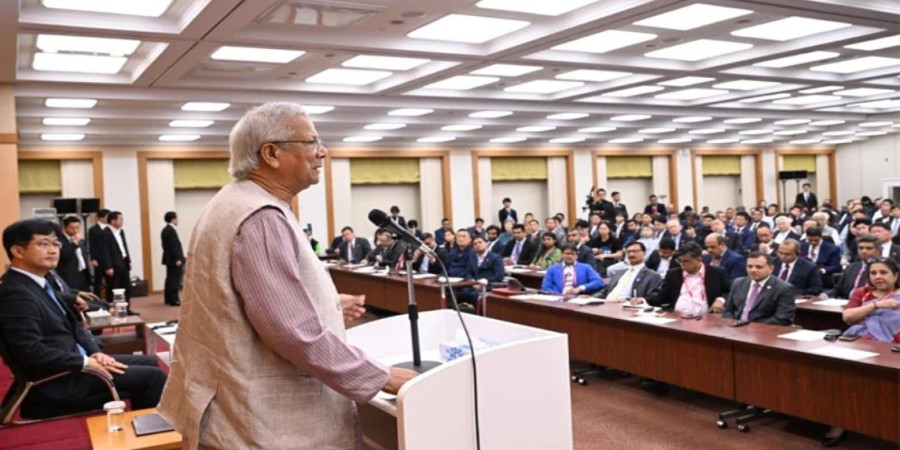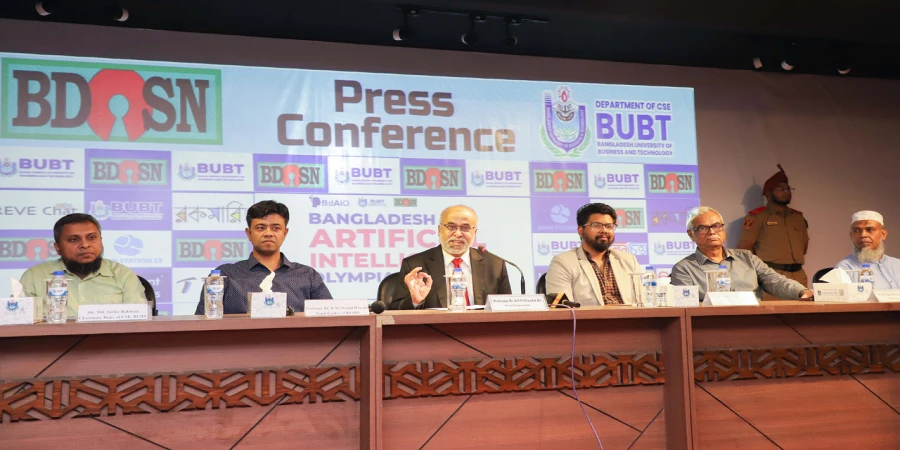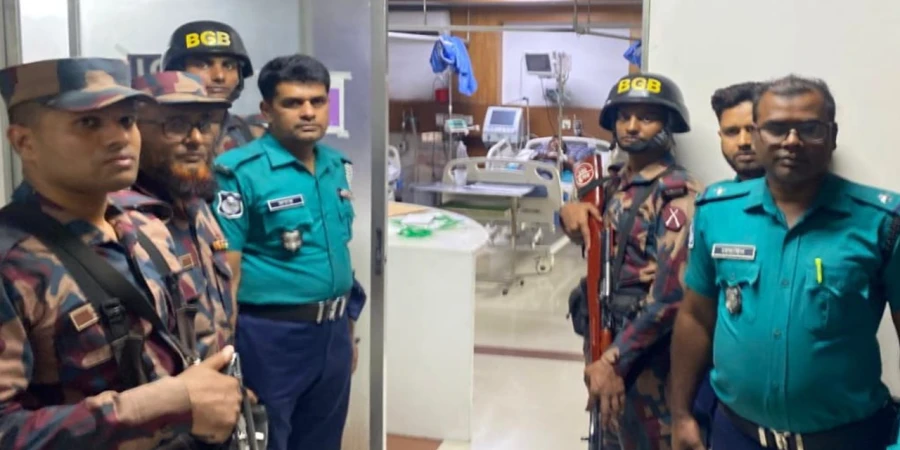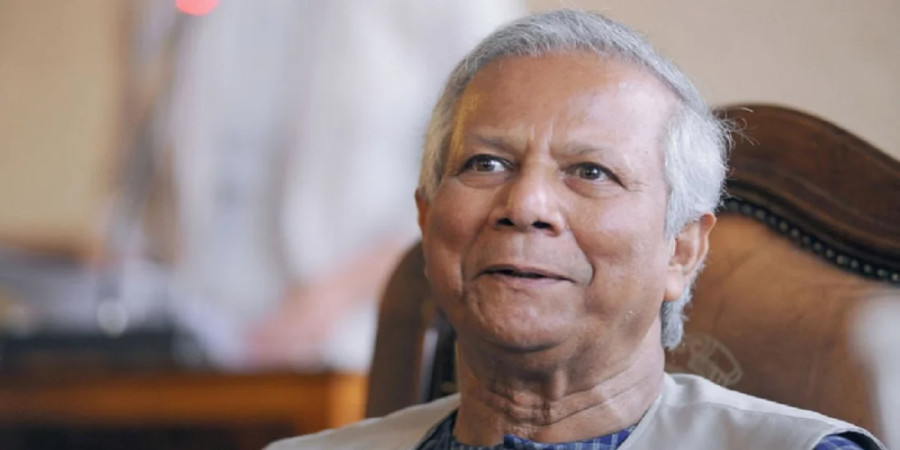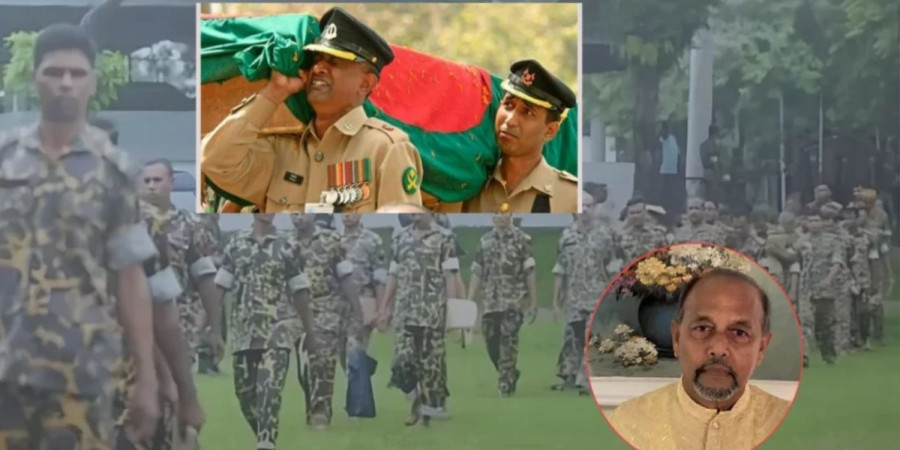
ছবি: Photo: Collected
The mysterious circumstances surrounding the 2009 BDR massacre, in which 57 army officers and their family members, along with several members of the BDR, lost their lives, continue to raise questions. This massacre, which occurred on February 25 and 26, 2009, has remained shrouded in controversy. Now, the interim government has decided to take action by forming a commission to investigate the incident, as many victims believe that the government's narrative has been one-sided for too long.
Former Army Chief, General Moin U Ahmed, has expressed his satisfaction with the interim government's decision to form an investigative commission. Speaking over the phone from Florida to a New York-based media outlet on December 26, 2024, he stated that the commission would uncover the truth behind the massacre, as the victims were some of the most skilled officers in the Bangladesh Army. He emphasized that the massacre was aimed at destroying the country's military force.
The interim government’s investigative commission has already held its first meeting, with the head of the commission, A.L.M. Fazlur Rahman, announcing that if there were any domestic or foreign conspiracies behind the killings, they would be identified and presented to the nation.
General Moin, who wrote a book titled "The Brutal Massacre at Pilkhana," is set to release the book soon, which he says will reveal many previously unknown details about the incident. In the book, he recounts his experiences and the chain of events that led to the massacre.
Living in Florida for medical treatment, General Moin has expressed disappointment over the rumors and speculations regarding his health. He stated that some comments had caused him emotional distress.
In a recent 29-minute video uploaded on YouTube, General Moin recalled the events of February 25, 2009. He shared his memory of a conversation with Major General Shakil Ahmed, the then Director-General of BDR, about unused military mortars, which were being handed over to BDR. According to General Moin, Shakil Ahmed was unaware of any rebellion at that point. The rebellion started in the Pilkhana Durbar, where Major General Shakil was present.
At around 9:30 a.m. on February 25, General Moin was informed by his principal secretary, Colonel Firoz, about the unrest in Pilkhana. After suspending the meeting, he moved to his office with his colleagues and attempted to contact the Prime Minister and the BDR Director-General. Despite the efforts, communication was not immediately successful. Military intelligence provided updates on the situation, which seemed to be deteriorating rapidly. Recognizing the gravity of the situation, General Moin ordered the 46th Independent Infantry Brigade to prepare for action, naming the operation "Restore Order."
By 9:47 a.m., General Moin was able to reach Major General Shakil, who described the situation in Pilkhana. According to him, during a meeting, two armed soldiers entered the Durbar Hall. One collapsed behind him, while the other left the hall, and gunfire followed soon after. General Moin suspected that this was part of a premeditated plan.
At 9:54 a.m., General Moin called Prime Minister Sheikh Hasina, who was already aware of the BDR mutiny. The Prime Minister inquired about the time it would take to prepare the army brigade. General Moin assured her that the brigade would be ready within two hours, a decision that was later approved by the Prime Minister.
At 10:30 a.m., the 46th Brigade, under the command of Brigadier General Hakim, began its march toward Pilkhana. The brigade faced heavy resistance from the mutineers, who had positioned large weapons in front of BDR gates. By 11:00 a.m., the first vehicle of the brigade was hit by a rocket attack, resulting in the death of its driver.
General Moin continued his account of the unfolding events, stating that by the time the brigade reached Pilkhana, most of the officers had already been killed. According to Lieutenant Colonel Shams, the majority of the officers were shot between 10:30 and 11:00 a.m. The army arrived too late to prevent the massacre.
Before noon, around 10:35 a.m., the Rapid Action Battalion (RAB) unit under Captain Shafique reached Pilkhana, but they were denied permission to enter. Had they been allowed to intervene earlier, the mutineers might not have been able to carry out further damage.
By 11:45 a.m., the Home Minister, Sahara Khatun, and other officials attempted to solve the issue through political means, with the mutineers demanding that the army withdraw. They were instructed to move at least two kilometers away, and the army complied. General Moin was sent to meet with former Prime Minister Khaleda Zia at Jamuna.
At 1:00 p.m., a delegation of mutineers, including former Minister Jahangir Kabir Nanak and others, approached Pilkhana for talks. They insisted on a general amnesty. However, General Moin opposed the idea of granting amnesty to the mutineers, stating that they should immediately stop the killings and release all captured officers and their families.
By 3:00 p.m., 14 mutineers arrived at Jamuna to negotiate, but they failed to provide answers to General Moin's questions about the number of officers killed. Prime Minister Sheikh Hasina later announced a general amnesty for the mutineers, but this did not stop the violence. The mutineers resumed their attacks, searching for more officers.
That night, efforts continued to negotiate with the mutineers, but by 2:00 a.m. on February 26, the situation was still unresolved. The mutineers released eight families, including three military officers' families. However, the rest of the officers and their families remained captive.
On February 26, Prime Minister Sheikh Hasina gave the mutineers a deadline to surrender. Faced with the impending military action, the mutineers finally agreed to surrender. At around 2:00 p.m., they raised a white flag and formally ended the mutiny after 33 hours of violence.
The tragic incident resulted in the deaths of 57 army officers, along with their family members. Despite the political resolution, many questions about the BDR massacre remain unanswered. General Moin's testimony and the government's ongoing investigation may help uncover the full extent of the conspiracy behind this horrific event.
repoter



